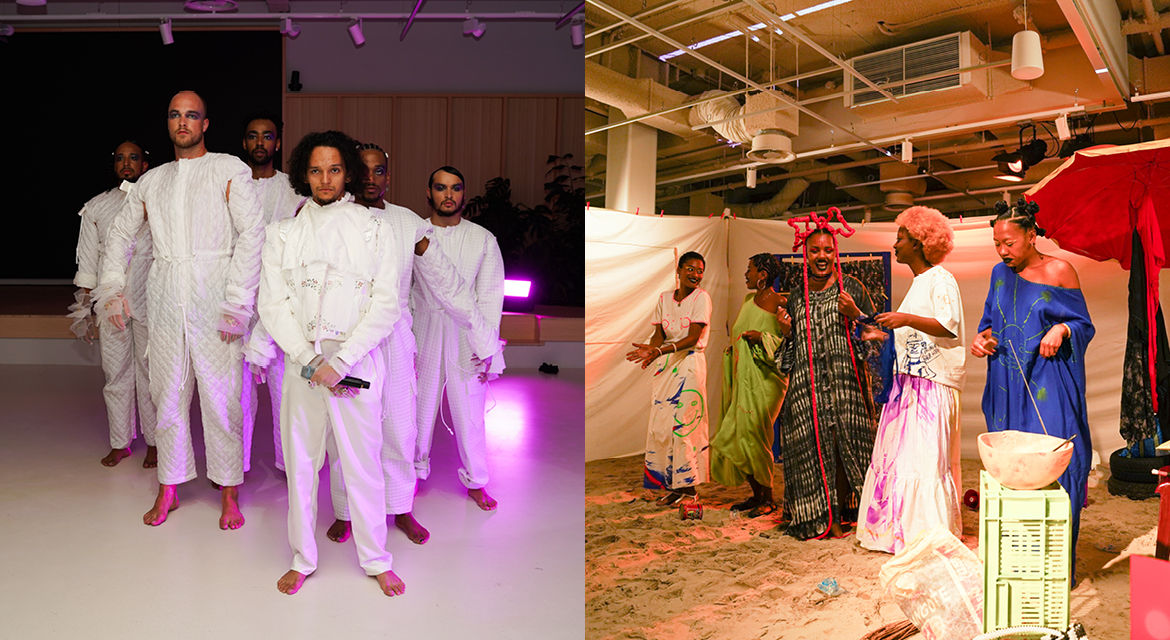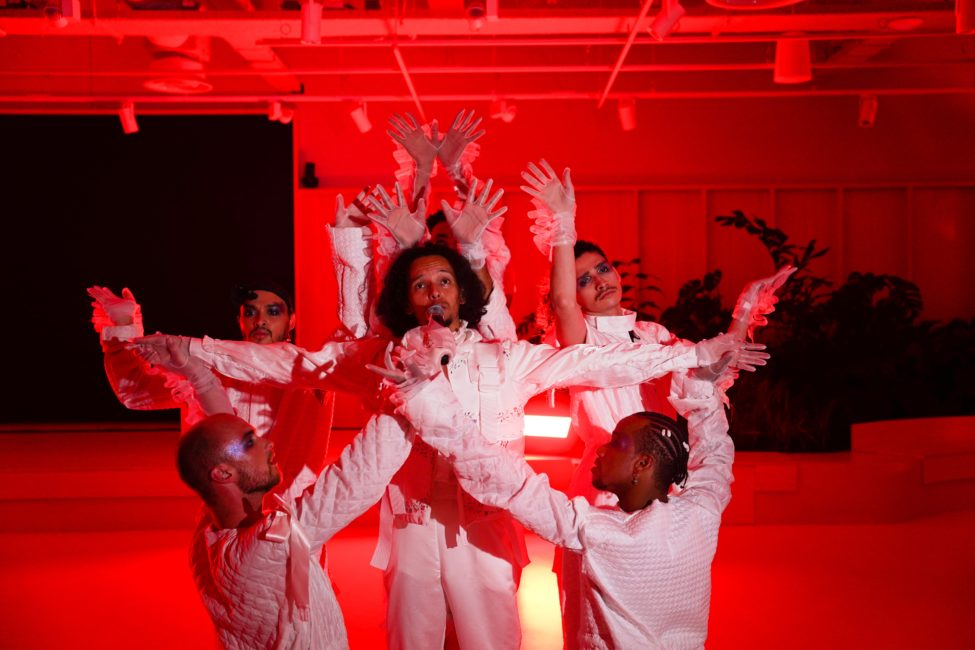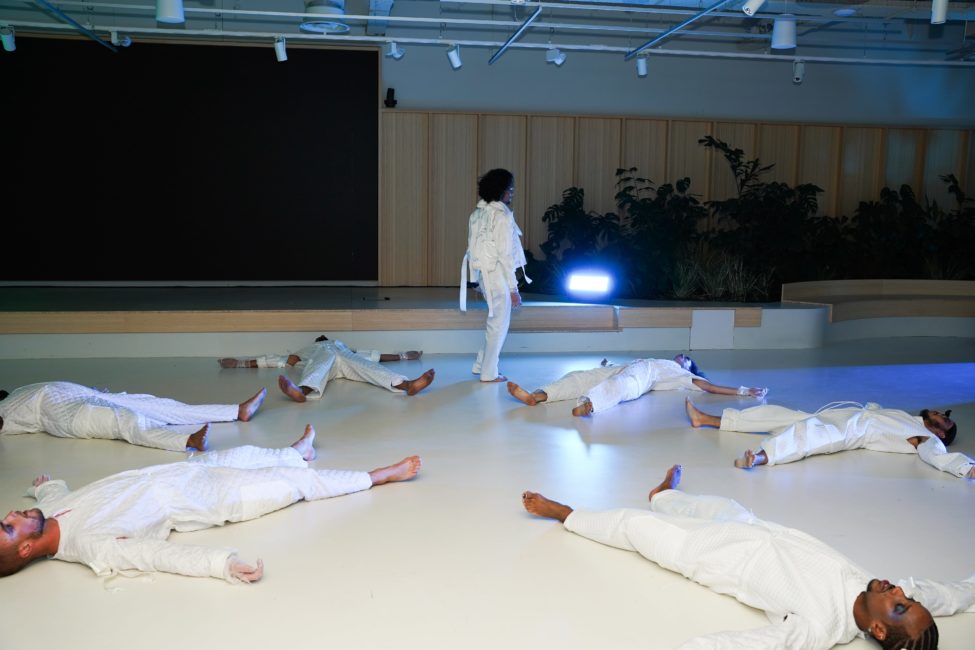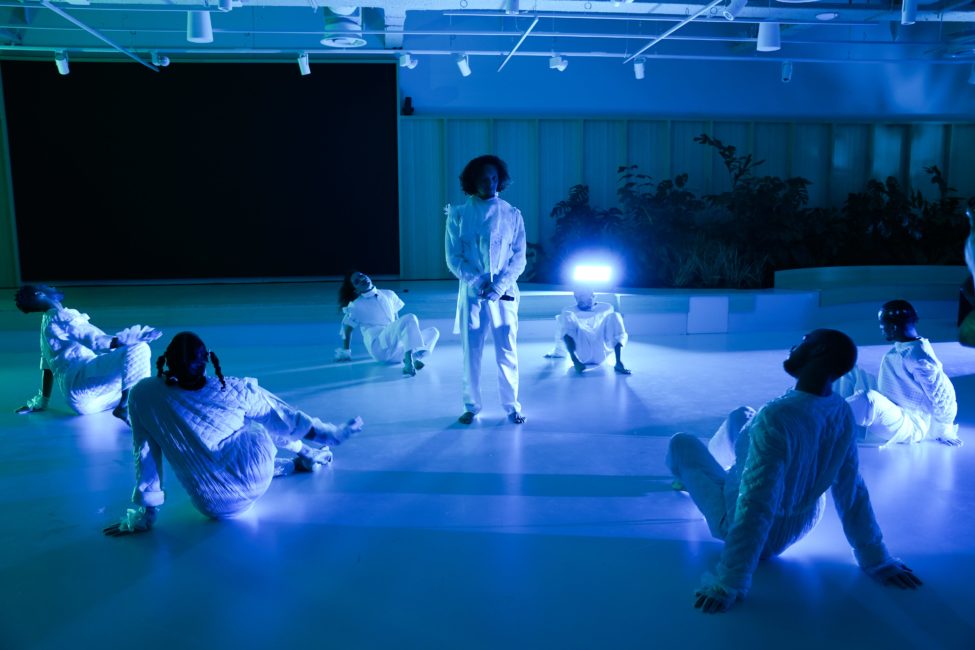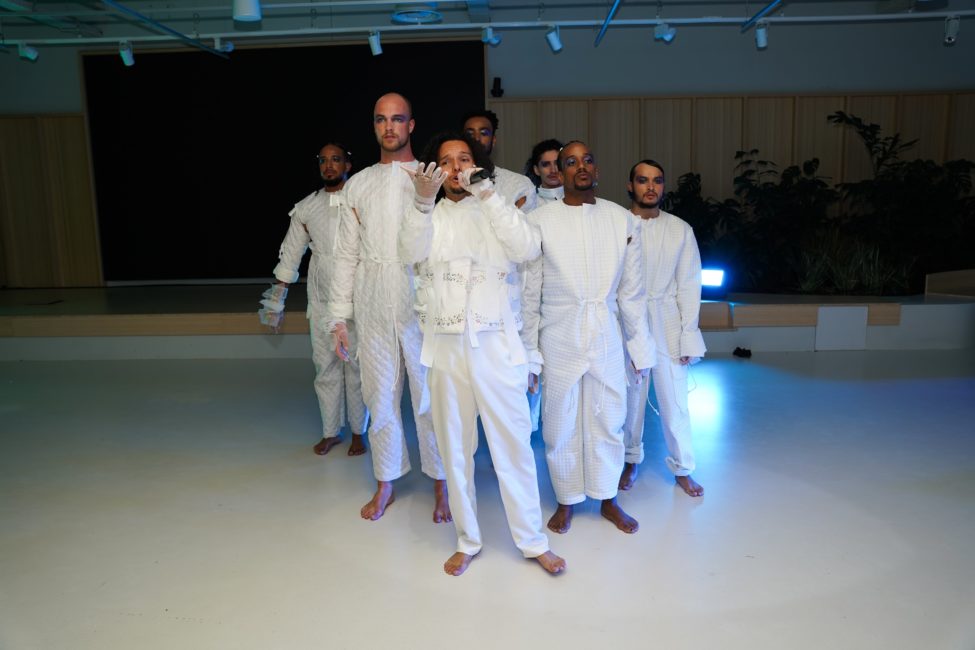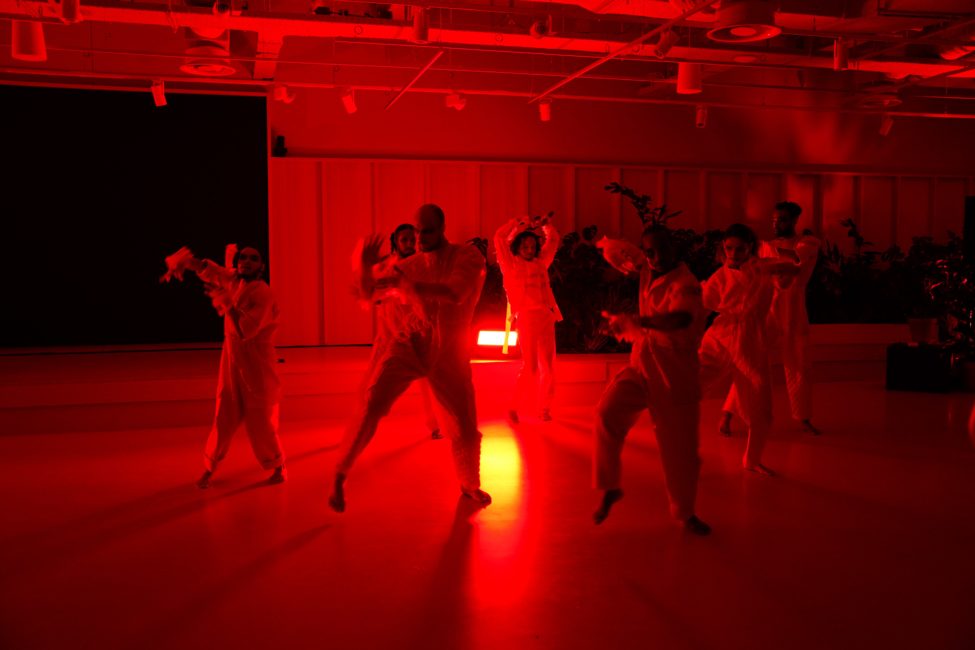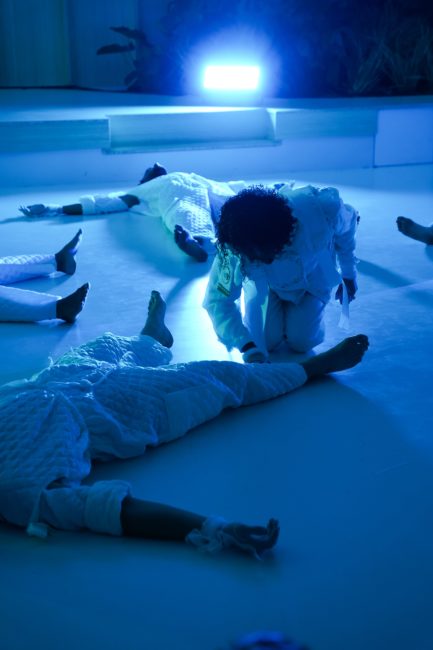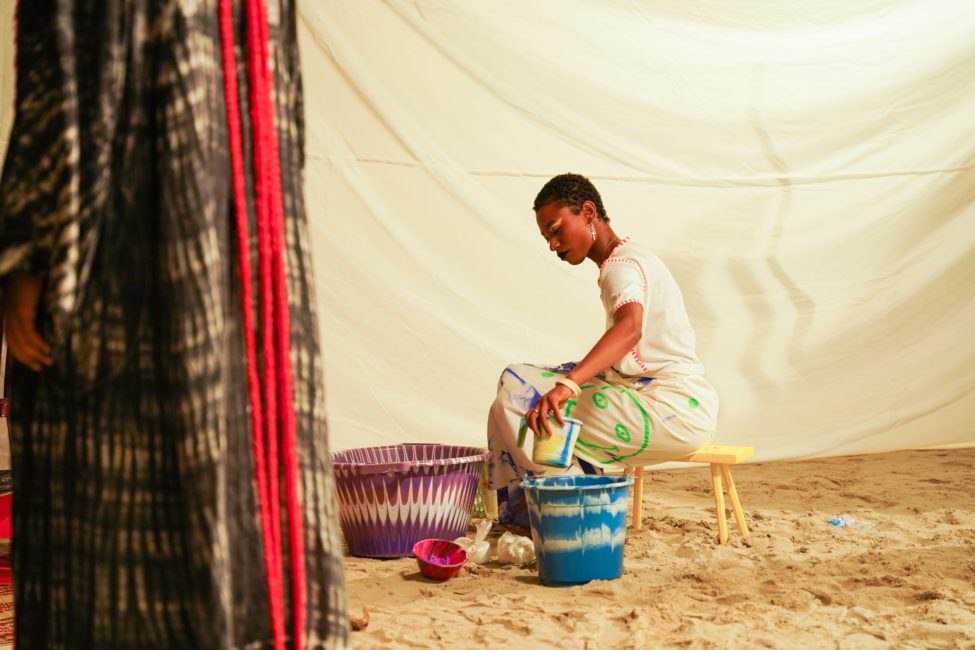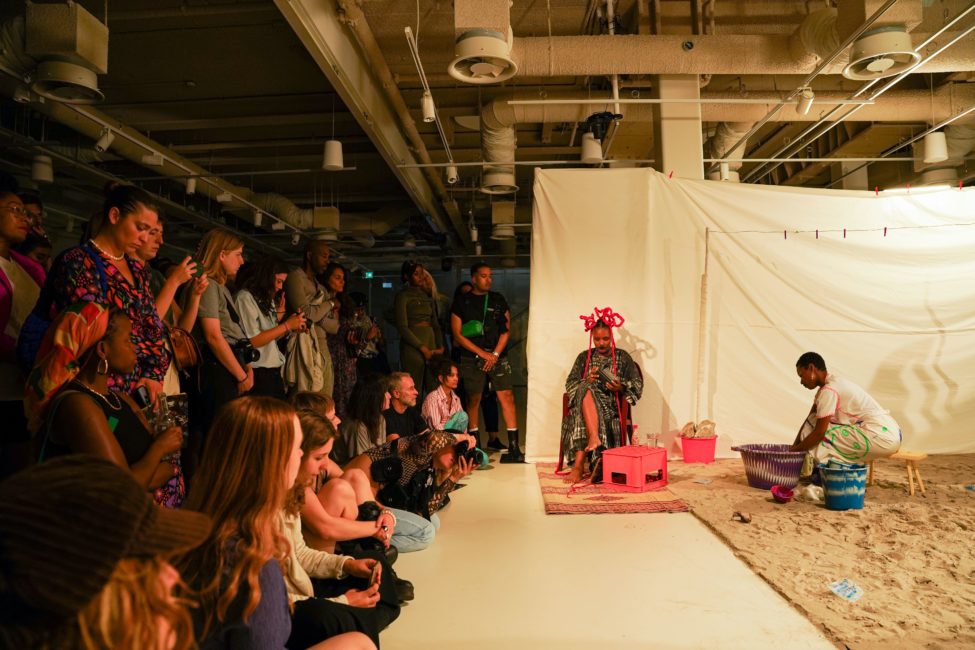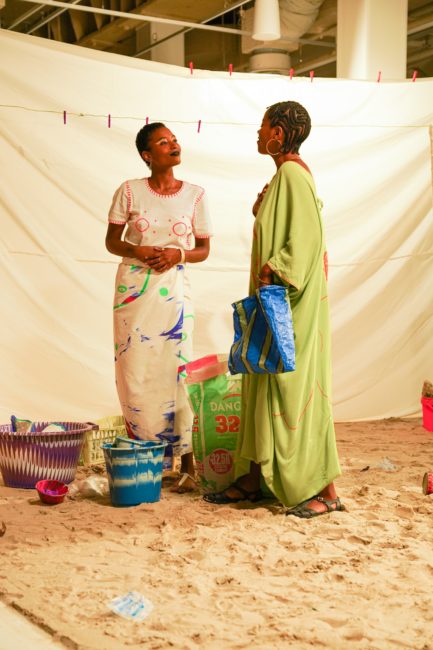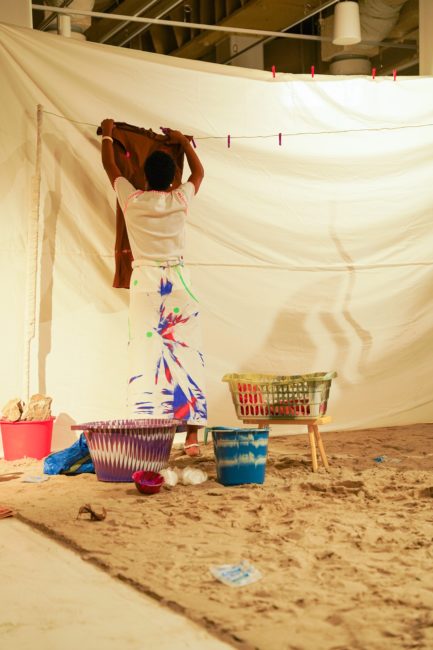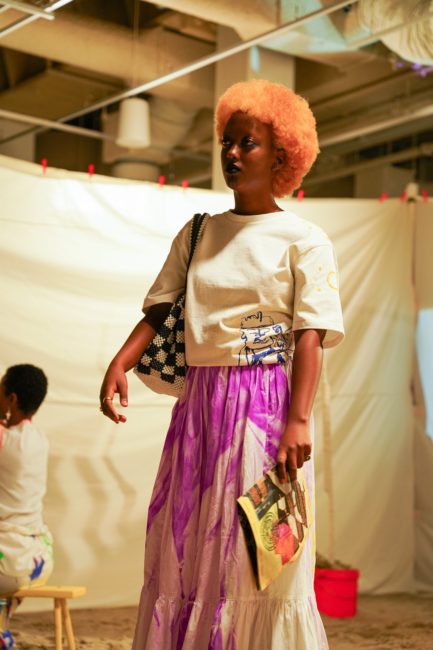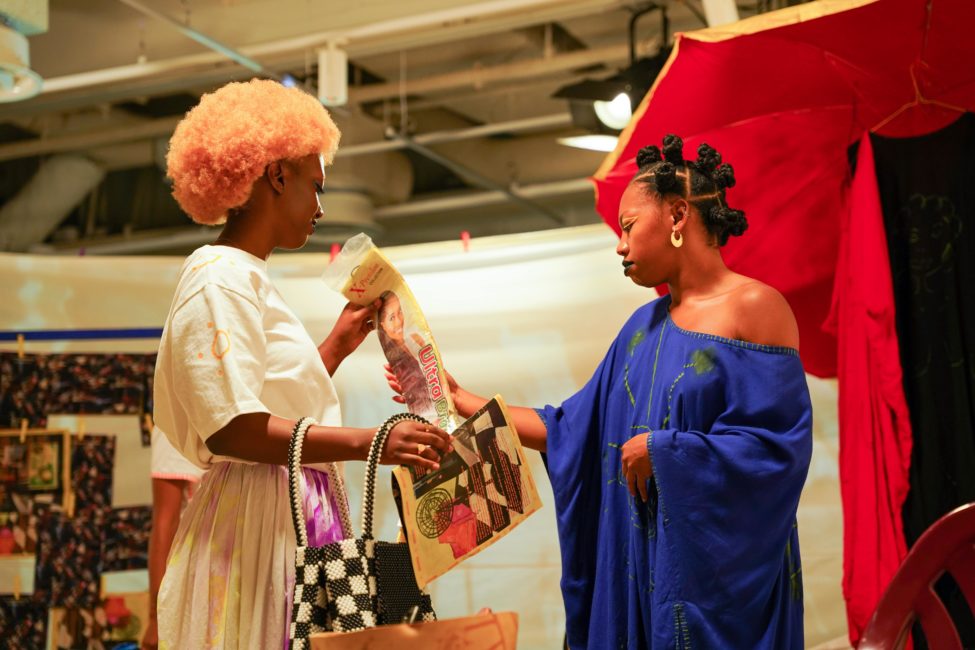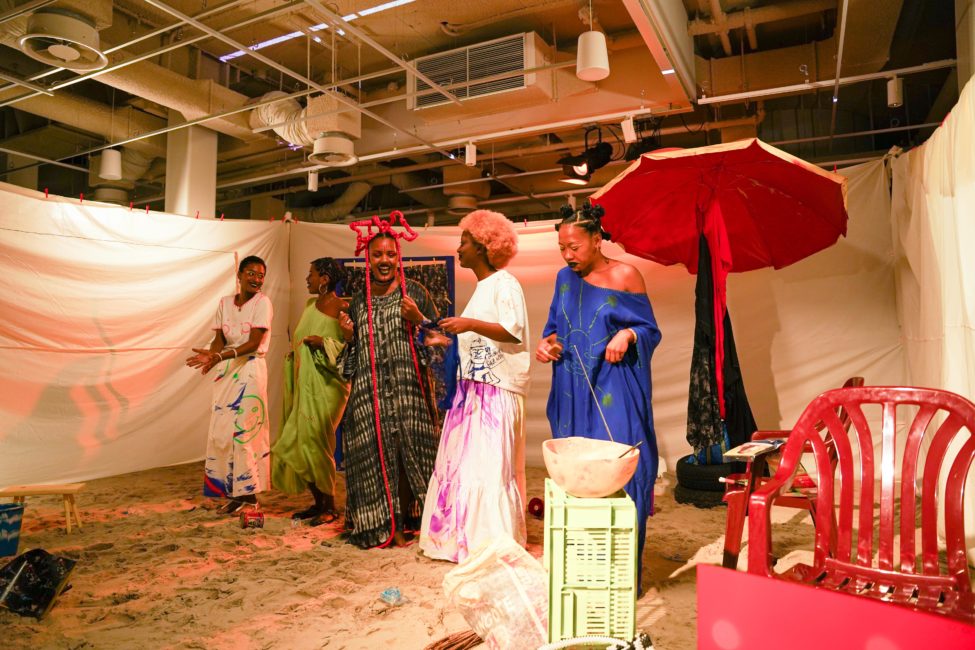Darwin Winklaar and Roxane Mbanga presented their first body of work during Amsterdam Fashion Week after their respective Lichting victory in 2020 and 2021, united by both’s questioning of their own identities, while reflecting on their heritage. The shows reflect their own idea of gender norms, as well as the way those are affected by their immediate environment.
Last year, Roxane’s work focused on the traditional Boubous and their interaction with the human female body. Fascinated by women, she shows interest in the way the streets affect their experiences. In ‘Naked Underneath or How to Use Clothes to Assert Oneself?, which is both essay and manifesto, diary and travelogue, she talks about her experience during her gap year in 2019, and questions the effect the male gaze has on a woman’s power.
For Lichting 2020 Darwin investigates his Caribbean roots while simultaneously bringing awareness to marginalised cultures and how those relate to a more Eurocentric perspective. In his practice he goes beyond fashion design and integrates storytelling and performance to convey his experiences. Most recently he also started releasing music.
Roxane’s show brings us to a space reminiscent of her travels to Dakar, Lagos and Abidjan. In the background, archive footage is projected, whilst the foreground displays multiple women going on with their daily activities. Roxane’s voice fills the space with words from her manifesto, others are washing clothes in a basinet, brushing hair strands for braiding in a set-up that holds familiarities to the places she visited in 2019. All the women are wearing boubous with hand dyes and hand drawn depictions of Roxane’s face. “In Lagos, people speak with their bodies. Today I lost my voice, I now am in silence”, she elaborates, whilst conveying the importance of observation. Comparing walking the streets of Lagos and France and how the male gaze influences a woman’s presence, dialogues between the characters highlight the freedom women experience when wearing a piece of cloth as a layer of modesty, whilst being completely naked underneath. Through incorporating Boubous in her work, she explores the interaction between cloth and the female body and about the ownership of not attracting attention.
Whilst Roxane questions her own role as a woman on the streets, Darwin’s depicts his own journey, coming into terms with the influence of machismo in our cultures and how detrimental it can be to queer representation. Through honouring the female presence in his life and the rituals they introduced him to, he found empowerment and healing of his reality. The mood switches as we experience what feels like a cathartic story of coming of age. In the background, we can hear his debut visual EP ANEMOIA, which retells his childhood memories and the domestic religious habits of the women who raised him. All performers are wearing white quilted boilersuits and mesh gloves with dainty gatherings unfinished hem, and hand-embroidered flower detailing. Darwin wears a jacket with lacey panels and belt satin strings that dance along with his moving body. Darwin’s work permits the presence of both empowerment and violence, spirituality and machismo, superstition and multiculturism. Opposing most urban songs, which represent heteronormative reality, he makes space for queerness, which also brings the untold stories of the Aruban reality.
Using fashion and performance as a vehicle, both Roxane and Darwin expose us to the experiences that shaped them. Each performance tells a multicultural story about becoming through being, and moves us through space and time. Each powerful in its own way, the strength of vulnerability ensues in both stories.
